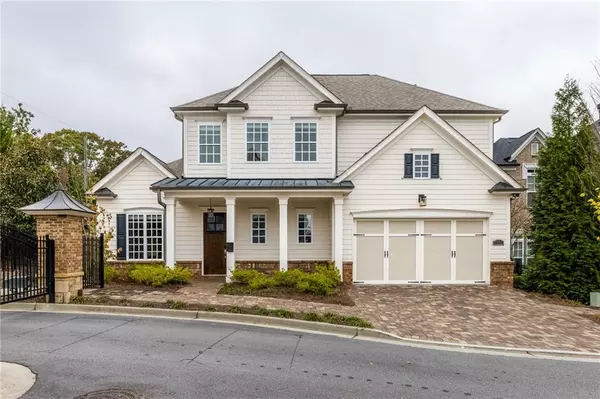Remodeling vs. Renovating: What's the Difference and Which is Right for Your Home?
When it comes to upgrading your home, many homeowners use the terms remodeling and renovating interchangeably. However, these two processes are quite different in terms of scope, cost, and outcomes. Whether you're looking to modernize your kitchen, update an old bathroom, or completely change the layout of your home, understanding the difference between remodeling and renovating will help you make informed decisions.
In this blog post, we’ll break down the key differences between remodeling and renovating, explore the pros and cons of each, and help you decide which option is right for your home and your budget.
What is Remodeling?
Remodeling refers to making significant changes to a room’s structure, layout, or functionality. Essentially, when you remodel, you are altering the form of a space to better suit your needs. This often involves more complex work, such as moving walls, changing room configurations, or upgrading electrical and plumbing systems.
Key Aspects of Remodeling:
Structural changes: Remodeling often involves knocking down walls or changing the layout of a room.
Functional updates: This may include adding new features, like a home office or an open-concept kitchen.
Cost: Remodeling projects tend to be more expensive because they require more extensive labor and materials.
Permits: Remodeling usually requires building permits, especially when making structural changes.
Examples of Remodeling:
Turning a guest bedroom into a home office.
Expanding a kitchen by removing walls.
Adding an en-suite bathroom to the master bedroom.
Pros of Remodeling:
Completely transforms your home.
Allows for personalized changes to suit your needs.
Can increase the resale value if done correctly.
Cons of Remodeling:
Costly: Typically more expensive due to the level of work involved.
Time-consuming: Larger projects can take several weeks or even months to complete.
Invasive: Remodeling can disrupt your daily life more than a renovation.
What is Renovating?
Renovating, on the other hand, involves restoring or updating the existing structure of a home without altering its layout. The goal of renovation is to refresh or upgrade the appearance of a room, making it look newer and more modern, without changing its core design.
Key Aspects of Renovating:
Surface-level changes: Renovations are focused on updates like painting, replacing flooring, or installing new fixtures.
Less invasive: Since there’s no major structural work involved, renovation projects are generally less disruptive.
Cost: Renovations are typically more affordable because they don’t involve large-scale construction work.
Permits: Renovation projects rarely require permits, unless electrical or plumbing work is involved.
Examples of Renovating:
Repainting your kitchen cabinets and installing new countertops.
Replacing old flooring with modern hardwood.
Updating bathroom fixtures without changing the layout.
Pros of Renovating:
Cost-effective: Renovations are generally less expensive than remodeling projects.
Quicker: Most renovation projects can be completed within a few days or weeks.
Less invasive: Renovating typically doesn’t disrupt your home life as much.
Cons of Renovating:
Limited transformation: You won’t be able to change the layout or function of a space.
Might not increase home value significantly: While a fresh look can attract buyers, it may not raise the value as much as a full remodel.
Remodeling vs. Renovating: Which Should You Choose?
The choice between remodeling and renovating comes down to your goals, budget, and timeline.
Choose Remodeling If:
You need to change the functionality of a room or the layout of your home.
You're looking for a major transformation and willing to invest time and money.
Your home needs structural updates to accommodate a growing family or a change in lifestyle.
Choose Renovating If:
You’re looking to give your home a fresh look without significant changes to the layout.
You’re on a tight budget but still want to update the appearance of your home.
You need a quicker and less disruptive project, such as preparing your home for sale.
Costs and ROI: Remodeling vs. Renovating
Both remodeling and renovating can add value to your home, but the costs and returns on investment (ROI) vary greatly.
Remodeling projects tend to have higher upfront costs but can yield a higher ROI, particularly for major upgrades like kitchen remodels or adding a new bathroom.
Renovating tends to have lower upfront costs and may not significantly increase your home’s market value, but it can still make your home more attractive to buyers.
For example, a midrange kitchen remodel can offer an ROI of around 50-60%, while a minor kitchen renovation might have a slightly higher ROI of 70-80%, depending on your location and market conditions.
Final Thoughts: Remodeling vs. Renovating for Your Home
Both remodeling and renovating can breathe new life into your home, but they serve different purposes. Renovations are ideal for homeowners looking to refresh a space without major construction, while remodeling is the better choice for those looking to significantly alter a room's function or layout.
Before making a decision, consider your long-term goals, your budget, and how much disruption you’re willing to tolerate. Whether you choose to remodel or renovate, both options offer a chance to enhance your home’s beauty, functionality, and value.
Ready to Start Your Project?
If you're planning a remodeling or renovation project, our experienced team of real estate and construction professionals is here to help.
Frequently Asked Questions (FAQs)
Q: Does remodeling cost more than renovating?Yes, because remodeling often involves structural changes, it tends to be more expensive than surface-level renovations.
Q: Do I need a permit for remodeling or renovating?You typically need a permit for remodeling, especially for structural changes, while most renovations don’t require one unless major systems are affected.
Q: Which adds more value to a home—remodeling or renovating?It depends on the project, but remodeling generally adds more value if it involves major upgrades like a new kitchen or bathroom.


 $263,0003 Beds3 Baths1,680 SqFt
$263,0003 Beds3 Baths1,680 SqFt

 $965,0004 Beds3.5 Baths3,187 SqFt
$965,0004 Beds3.5 Baths3,187 SqFt
 Agent License ID: 408686
Agent License ID: 408686


